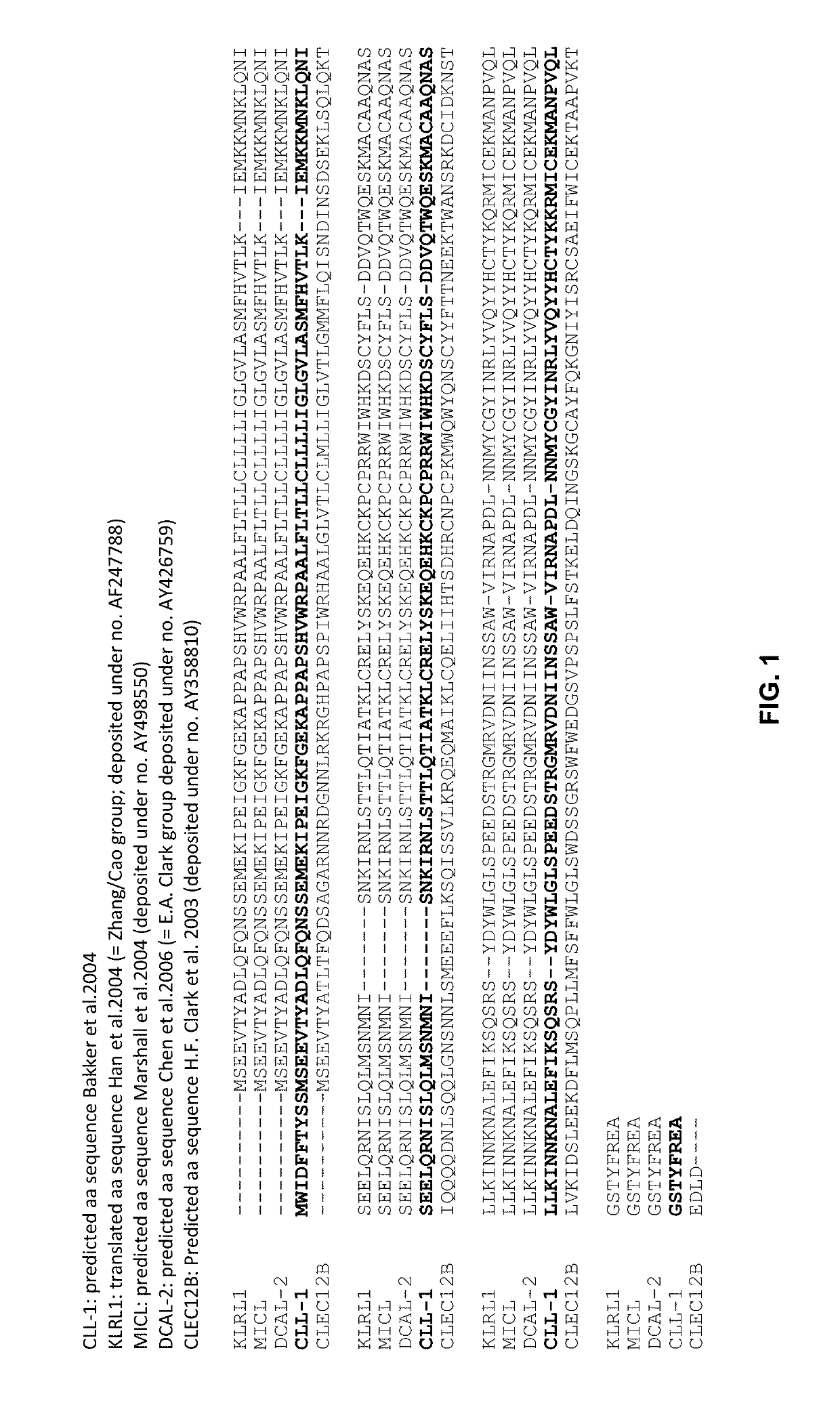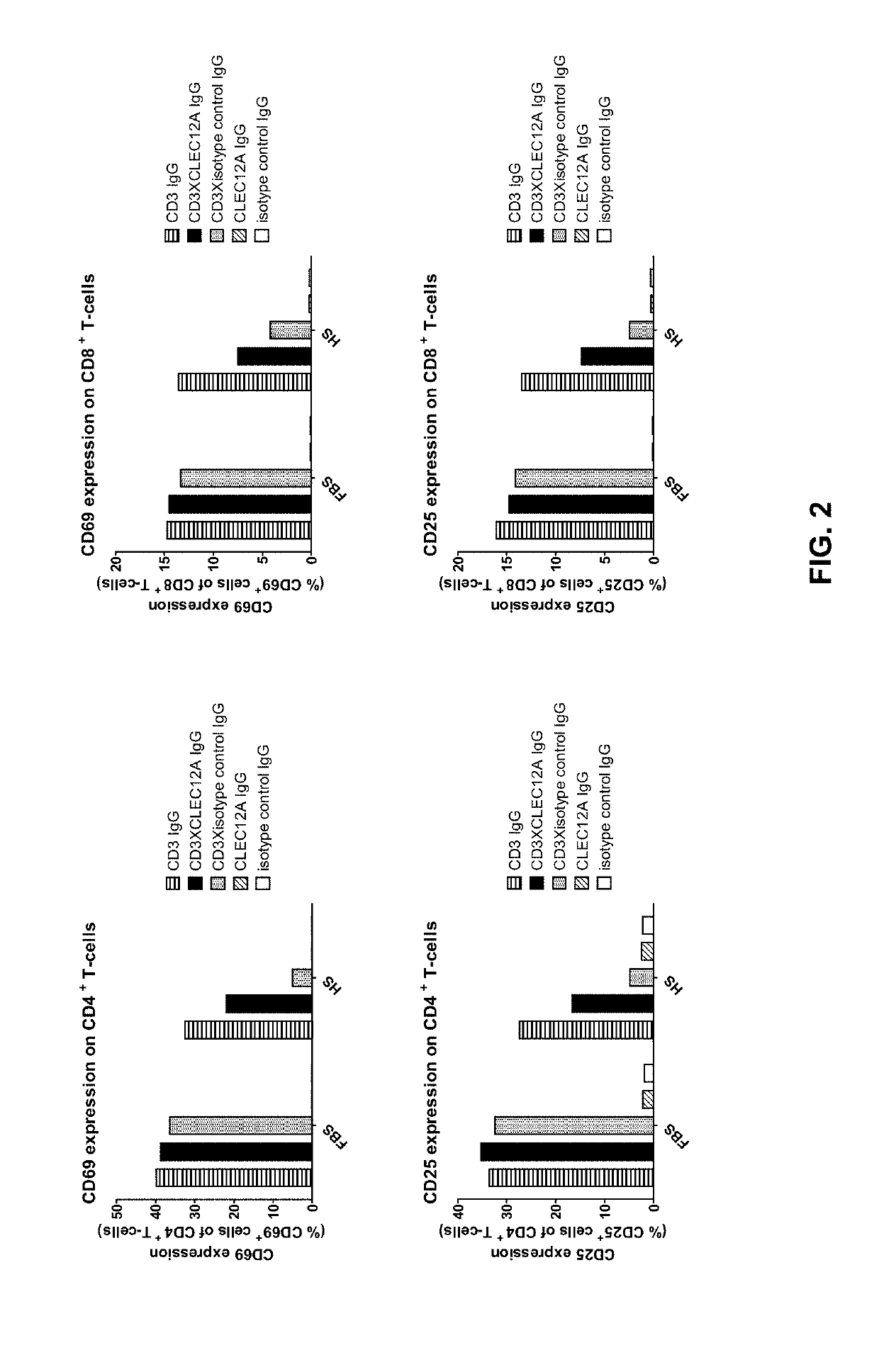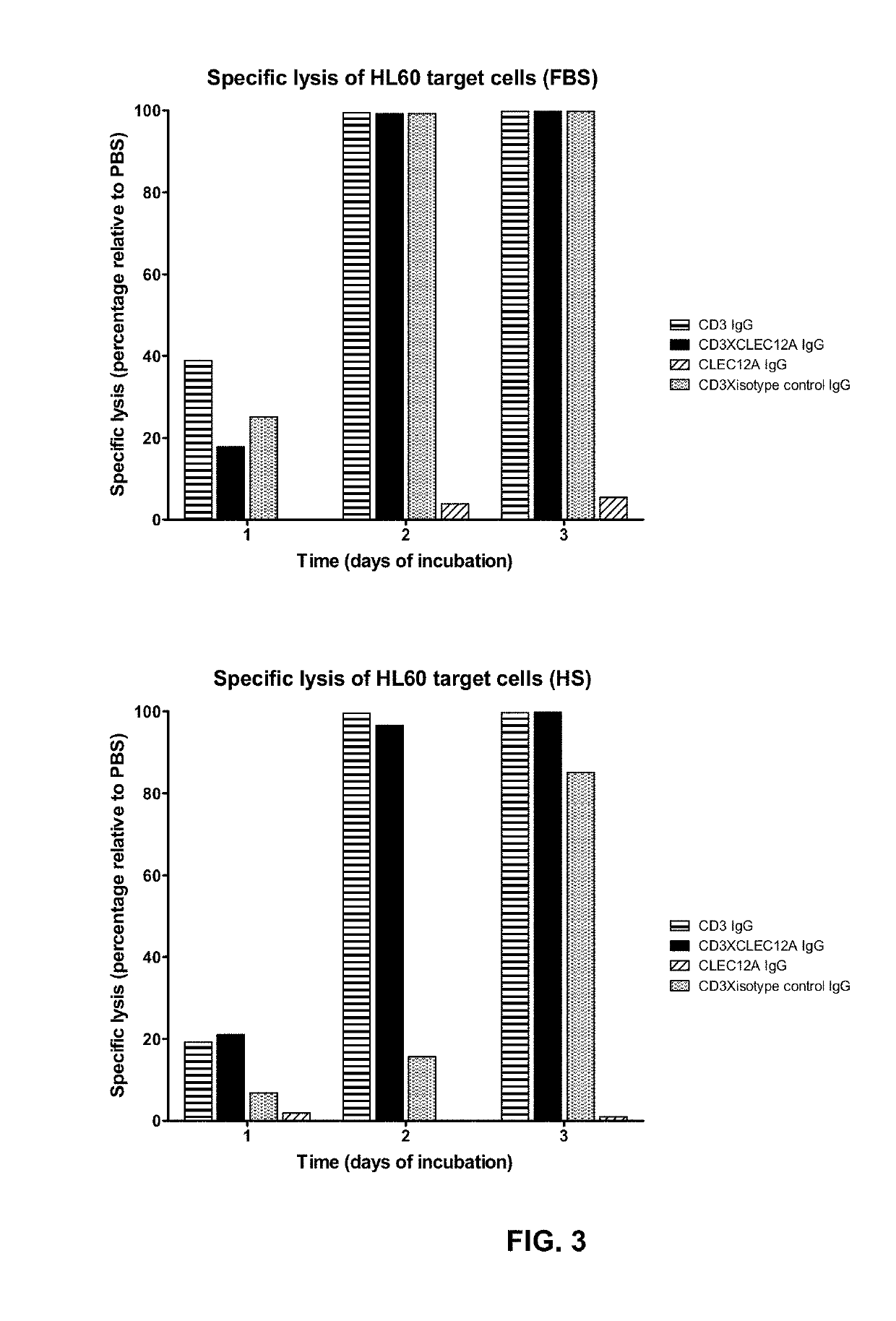Bispecific IgG antibodies as T cell engagers
a bispecific, igg technology, applied in the field of antibody engineering, can solve the problem that the full length of the igg molecule is too large to create effective cytolytic synapses between tumor cells
- Summary
- Abstract
- Description
- Claims
- Application Information
AI Technical Summary
Benefits of technology
Problems solved by technology
Method used
Image
Examples
example 1
n and Functional Characterization of a Candidate CD3×CLEC12 Bispecific IgG1
[0055]To validate the concept of targeting an immune effector cell to an aberrant cell with a bispecific full length IgG, a candidate CD3×CLEC12A bispecific IgG1 was generated for which the CD3 and CLEC12A Fab arms were derived from antibodies previously described. In the CD3 Fab arm, the VH region from anti-CD3 antibody 15C3, one of the CD3-specific antibodies as disclosed in WO2005 / 118635, was used and this VH is referred to as ‘3056’. In the CLEC12A Fab arm, the VH region from scFv SC02-357, one of the CLEC12A-specific antibodies as disclosed in WO2005 / 000894, was used (hereafter named ‘CLEC12A benchmark [Fab arm or antibody]’; alternatively this VH is referred to as ‘3116’). The nucleotide and amino acid sequences of the VH of the CD3 arm (3056) (SEQ ID NOS: 26 and 27), as well as the nucleotide and amino acid sequences of the VH of the CLEC12A arm (3116) (SEQ ID NOS: 32 and 33) of this candidate molecule...
example 2
n and Characterization of CD3 Fab Arms for CD3×CLEC12 bsAb
[0065]Example 1 showed that CD3×CLEC12A bispecific molecules can be potent inducers of T-cell mediated tumor cell lysis. Therefore, to generate more extensive panels of such bispecific molecules separate panels of CD3 binders as well as CLEC12A binders were generated.
[0066]For generation of a panel of CD3 binders, CD3ε-specific VH regions are generated by immunization of mice transgenic for the huVκ1-39 light chain (WO2009 / 157771) and for a human heavy chain (HC) minilocus with CD3ε in various formats: (1) isolated CD3δ / ε or CD3γ / ε that may be fused of coupled to a carrier molecule (such as human IgG-Fc or a His-tag) as known in the art with or without adjuvant, (2) cells expressing CD3δ / ε or CD3γ / ε, or (3) DNA construct encoding CD3δ / ε or CD3γ / ε, or a combination of these strategies. From immunized mice displaying a sufficient antigen-specific titer as determined by ELISA and / or flow cytometry, spleens and / or lymph nodes are...
example 3
n and Characterization of CLEC12 Fab Arms for CD3×CLEC12 bsAb
[0069]As it was demonstrated in Example 1 that CD3×CLEC12A bispecific molecules have the potency to induce T-cell mediated tumor cell lysis, we next wished to establish more extensive panels of such bispecific molecules. In addition to the panel of CD3 binders as described in Example 2 we also generated a panel of CLEC12A binders.
[0070]Briefly, CLEC12A-specific Fab arms were selected from Fab synthetic phage display libraries which contained the rearranged human IGKV1-39 / IGKJ1 VL region and a collection of human VH regions (De Kruif et al. Biotechnol Bioeng. 2010 (106)741-50). Bacteriophages from these banks were selected in two rounds for binding to CLEC12A. This was done by incubation with the extracellular domain of CLEC12A (amino acids 75 to 275) coupled to a His-tag (Sino Biological, cat. no. 11896-H07H) which was coated to a surface. Non-binding phages were removed, binding phages were chemically eluted, and used to ...
PUM
| Property | Measurement | Unit |
|---|---|---|
| concentration | aaaaa | aaaaa |
| concentration | aaaaa | aaaaa |
| concentration | aaaaa | aaaaa |
Abstract
Description
Claims
Application Information
 Login to View More
Login to View More - R&D
- Intellectual Property
- Life Sciences
- Materials
- Tech Scout
- Unparalleled Data Quality
- Higher Quality Content
- 60% Fewer Hallucinations
Browse by: Latest US Patents, China's latest patents, Technical Efficacy Thesaurus, Application Domain, Technology Topic, Popular Technical Reports.
© 2025 PatSnap. All rights reserved.Legal|Privacy policy|Modern Slavery Act Transparency Statement|Sitemap|About US| Contact US: help@patsnap.com



